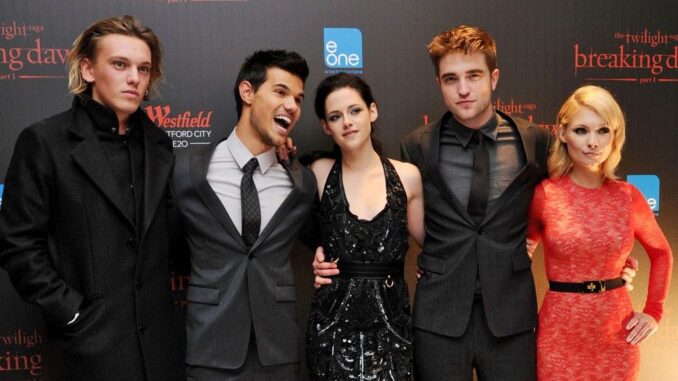
Okay, let’s craft an illustrative essay about Kristen Stewart and Robert Pattinson’s potential reactions to a new Twilight version, bearing in mind that as of my knowledge cut-off in late 2023, no reboot or significant re-envisioning of the franchise has been officially announced or released that would warrant substantial comment from them. This means we’ll be exploring hypothetical scenarios and drawing upon their past comments and public personas to create a plausible and illustrative narrative.
Title: Fangs Revisited: Hypothetical Reflections on a Twilight Reimagining
The cinematic landscape is littered with the resurrected remains of beloved franchises. From Batman to Spider-Man, stories once thought concluded find new life in the hands of different creators, for better or worse. It’s only natural, then, that the whisperings of a Twilight reimagining, a new bite at the apple (or perhaps, a new sip of the blood?), have started circulating, fueled by nostalgia and the enduring appeal of young adult romance. But what would the original faces of Bella Swan and Edward Cullen, Kristen Stewart and Robert Pattinson, make of this potential return to Forks? Their responses, I suspect, would be complex, nuanced, and reflective of their own evolving careers and perspectives.
Imagine the scenario: Years after shedding the vampire skin and embracing diverse, challenging roles, Stewart and Pattinson are asked about a fresh take on the saga that launched them into superstardom. Stewart, known for her candidness and indie sensibilities, would likely approach the subject with a healthy dose of skepticism and a touch of protective affection. “Look,” she might say in an interview, her signature wry smile playing on her lips, “that time in my life was…intense. It shaped me, definitely. But Twilight belongs to a specific moment. If someone wants to explore those themes of obsessive love and finding yourself through unconventional relationships, great. But it needs to be done with a fresh perspective, a real understanding of what young people are going through now.”
Her emphasis would likely be on authenticity. Stewart, having carved a path for herself in independent cinema, would likely champion a version that delves deeper into the anxieties and complexities of adolescence, perhaps even offering a more critical lens on the original’s idealized romance. She might express hope that the new iteration would avoid simply replicating the original’s formula, urging the creators to “rip it apart and build something new, something that actually says something.” We might see her subtly advocating for greater representation, for storylines that reflect the diverse experiences of contemporary youth, a far cry from the overwhelmingly white and heteronormative world of the original films.
Pattinson’s reaction, while perhaps equally measured, would likely be tinged with a different kind of reflection. He has, perhaps even more overtly than Stewart, distanced himself from the heartthrob image, embracing eccentric roles and challenging himself with demanding performances. He might offer a more philosophical take, acknowledging the cyclical nature of storytelling and the inevitability of revisiting familiar narratives. “It’s interesting, isn’t it?” he might muse in an interview, a hint of amusement in his voice. “These stories, they become part of the cultural fabric. They get reinterpreted, remixed, and that’s just the way it goes.”
However, beneath the surface of his detached observation, I suspect there would be a flicker of protectiveness, a sense of ownership over the character he helped bring to life. He might express a hope that the new Edward would be allowed to be more than just a brooding romantic figure, that the character’s inherent contradictions and anxieties would be explored with greater depth. Perhaps he would even suggest, with a knowing grin, that the new actor cast in the role should “embrace the absurdity” of it all. “Don’t take it too seriously,” he might advise, “or you’ll end up trapped in a sparkly vampire hellscape.”
Ultimately, both Stewart and Pattinson’s hypothetical reactions would likely converge on a central theme: the importance of originality and authenticity. They would acknowledge the impact Twilight had on their lives and careers, but also emphasize the need for any reimagining to move beyond mere replication and offer a fresh, relevant perspective. Their words would serve as a reminder that while nostalgia can be a powerful force, true artistry lies in the ability to breathe new life into familiar stories, to explore universal themes in ways that resonate with contemporary audiences. The fangs may be the same, but the blood they draw should be freshly, and thoughtfully, spilled.
